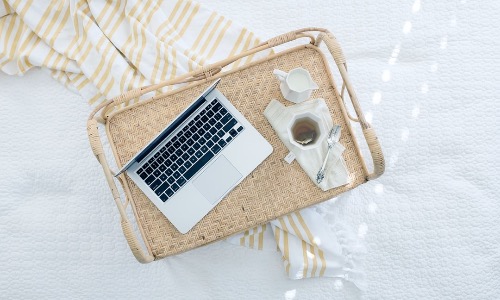
In the last few years, the research into the connection between wellbeing at work and company results and performance has been absolutely conclusive. In fact the data keeps on building and CIPD surveys have shown where ill health and poor mental health have been leading cases of absences in the UK. Further more, it is also cited as a reason that people leave their current job and look for something elsewhere where they believe their wellbeing will be a priority in another company.
On the upside, there is evidence to suggest ( BMC Public Health) that worksite health promotion programmes have a positive effect on employees changing their levels of physical activity and weight loss. While a review was undertaken by BMC with findings to say that there are moderate improvements with workplace healthy programmes on diet, it is not yet enough or integrated fully in most workplaces. Indeed they say ‘ Future programmes to improve employee dietary habits should move beyond individual eduction and aim to intervene at multiple levels in the work environment’.
Meanwhile in companies that have been the most creative with Wellbeing and made a core foundational principle of the business, offering help and support in all areas of health, nutrition and fitness there have been astounding results. For example, e-commerce company Nextjump proved that there had been a fourfold increase in annual sales growth from 30% to 120% and the only variable involved was the difference in the investment in it’s people! This statistic is truly astounding and illustrates that the right Wellbeing Approach is not simply a tick box nice to have extra but is business driven and a company issue that directly affects and drives the bottom line.
The last few months have led people across the UK and the world to reassess their personal priorities . Instead of people talking about a work/life balance, I have heard instead the phrase life/work balance – in fact, I cannot understand why it has not always been this way around.
I have had the privilege recently as part of my podcast with my co host Julian Roberts and a colleague, Duncan Skelton, to create a special one off series ‘Setting Your Sat Nav For The New World’ – Life the other side of Covid-19. We interviewed a number of business leaders about their challenges during this time, their approach to their teams and staff, and most importantly what had changed for the long term. What they would be doing different in the future.
Without exception, wellbeing was the central point of discussion. Personal wellbeing and collective wellbeing as they navigated significant challenges and difficulties of the business through the early days of fire fighting and disruption through to finding a route to move forward, stay afloat and in many cases ‘ thrive’. What I particularly love is that wellbeing has become personal rather than a collective term applied to a policy and a group of initiatives.
Seeing people unfiltered every day through the zoom lens has heightened the need to treat us all differently and that we all have different needs. Instead of showing up suited and booted, with our best foot forward and answering to the question ‘ How are you today’ (- if indeed we are asked as we stand side by side at the coffee machine), “I’m fine thank you”……….we have been able to SEE that people are struggling: that managing the children and work has left them stressed and torn between responsibilities: that isolation has taken it’s toll and living alone IS lonely; that motivating yourself each day CAN be so tough; that navigating the unknown and feeling out of control really can have a detrimental effect on some people. Emotions have not been hidden ready to explode when we get home from work but spread wide before us with a new authenticity that I hope we do not lose, and we have had to deal with those raw emotions and help people navigate a way through. There have been highs and lows, good days and bad- and this is true of life always, not just at this time. The difference is that it has been played out on a screen in front of us with no filter of a suit, make up, or facade of the impersonal office furniture.
So employee wellbeing has become personal. No longer a homogenous group of people that we find an overarching policy for, with a fruit bowl offering daily, a dress down Friday, a gym membership and a duvet day – because we have been doing all that at home and we have required more from our leaders. From what I can see, many have stepped up and delivered. Whether it has been chatting to children on zoom calls while their parents prepare to join themselves, daily meetings wearing hats, flexible working in the extreme, or taking steps to make staff feel safe, wellbeing has been forefront and prioritised.
Why must it continue to be so?
Individuals have realised that a run around the park will always be the way now instead of a commute because if there’s one thing we have proved, it’s that we can all be trusted to work from home.
People have valued time with families, playing games, walking, cycling or just chatting.
Food has become central again. A time to talk, share, eat together and prepare more nourishing food.
Work is no longer the be all and end all because life has happened around it …while we have managed to keep working.
I hope this will the way post Covid. After all, this has been a global health pandemic and drastic changes to our health and the way we approach it are needed to safeguard our future. Businesses need to embed the wellbeing message not only in the physical build environment but as a purpose driven, meaningful ‘golden thread’ through all business activities and undertakings.
How many times have you uttered or heard uttered the phrase ‘ without our health we are nothing’? I believe for the first time in forever, we are now beginning to understand what this means on an individual and personal level because we have all been touched by stories and experiences within our own worlds of suffering and sickness and tragically death at this time. I do believe we will take a stand for things in a way we didn’t before. People will say no to things they didn’t before. Values will be upfront and drive behaviours perhaps in a way they didn’t before. Businesses will have to manage employee wellbeing in a way they didn’t before. Not just through policy but through weaving it through the company values, culture, objectives, processes, initiatives and day to day tasks. It must be all encompassing – encompassing all aspects of physical and mental wellness. Health must drive purpose.
Because I strongly believe if this is not where your sat nav is set for right now, you may become lost and never get to where you want to go.




